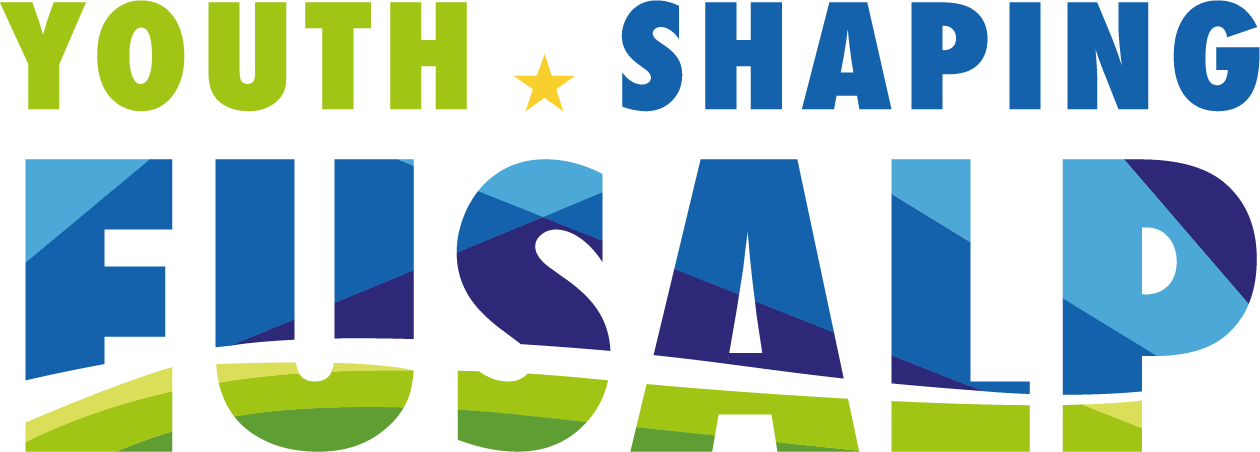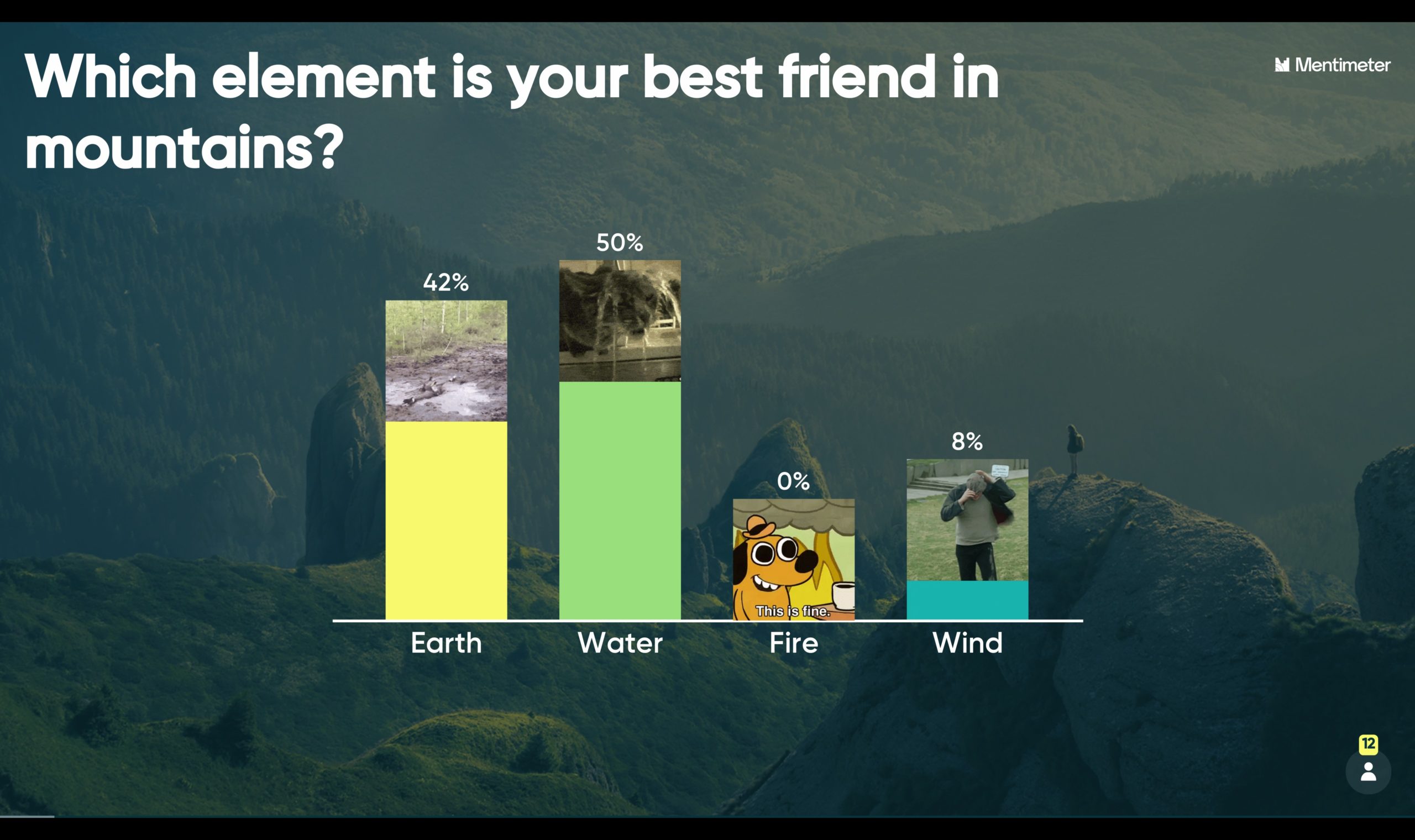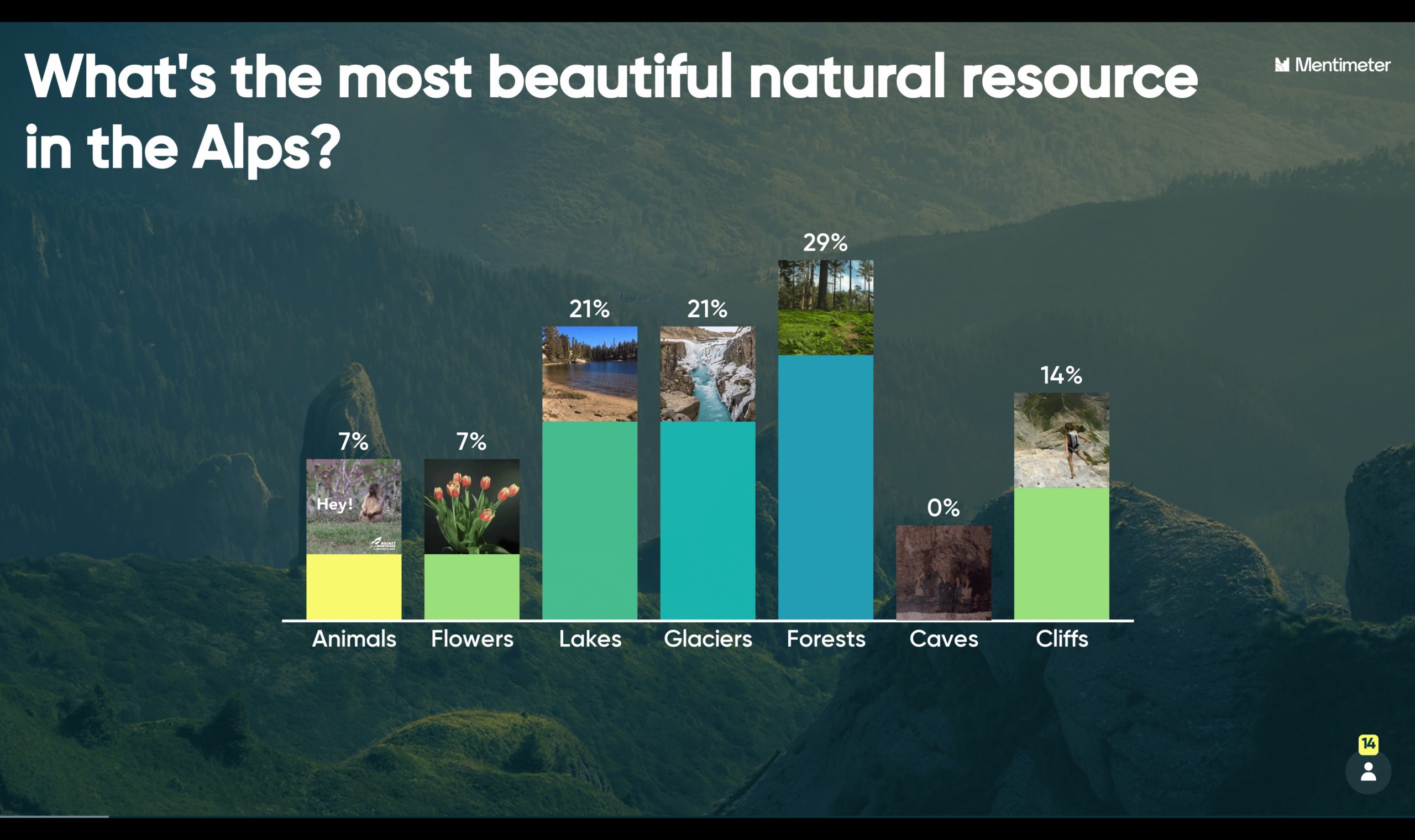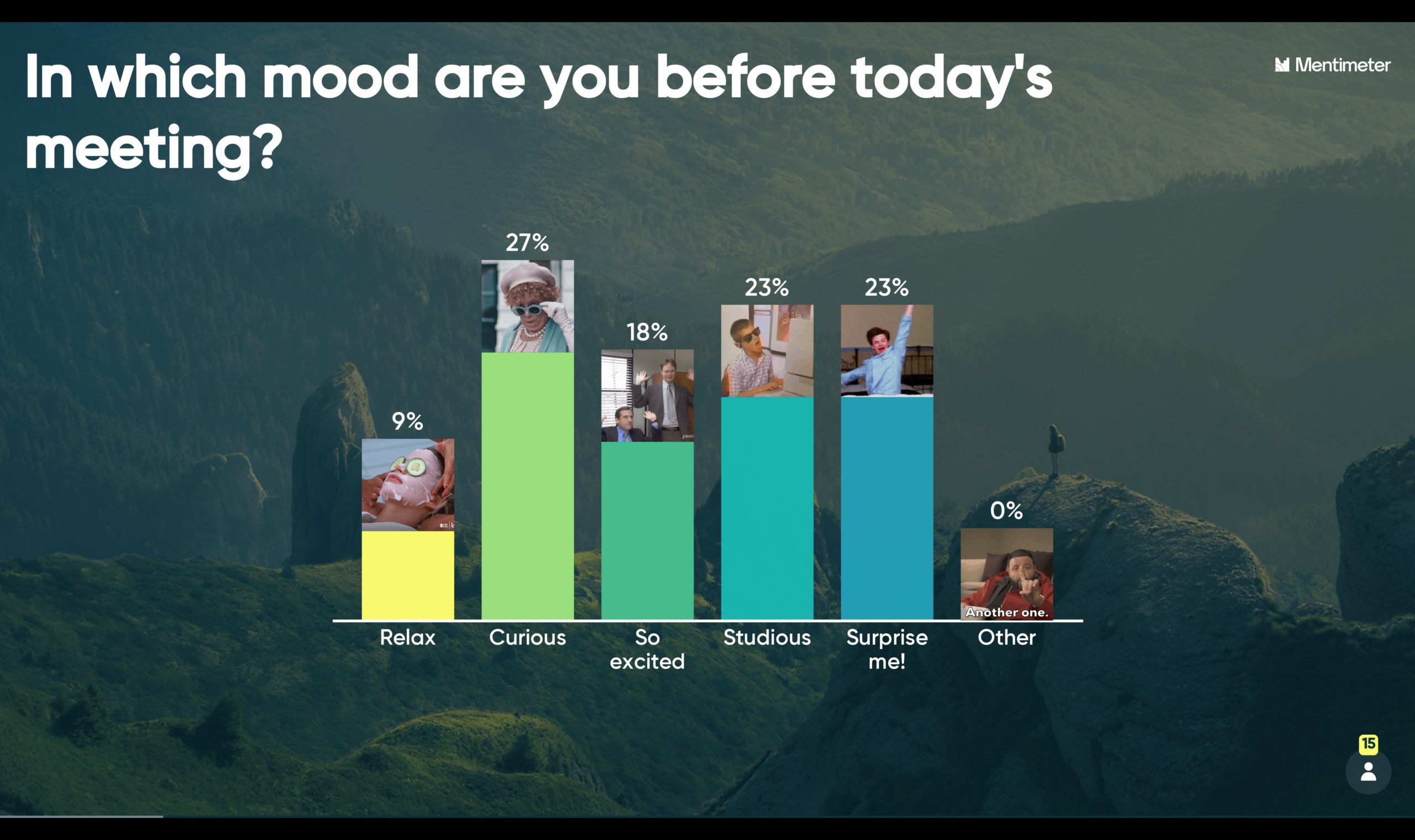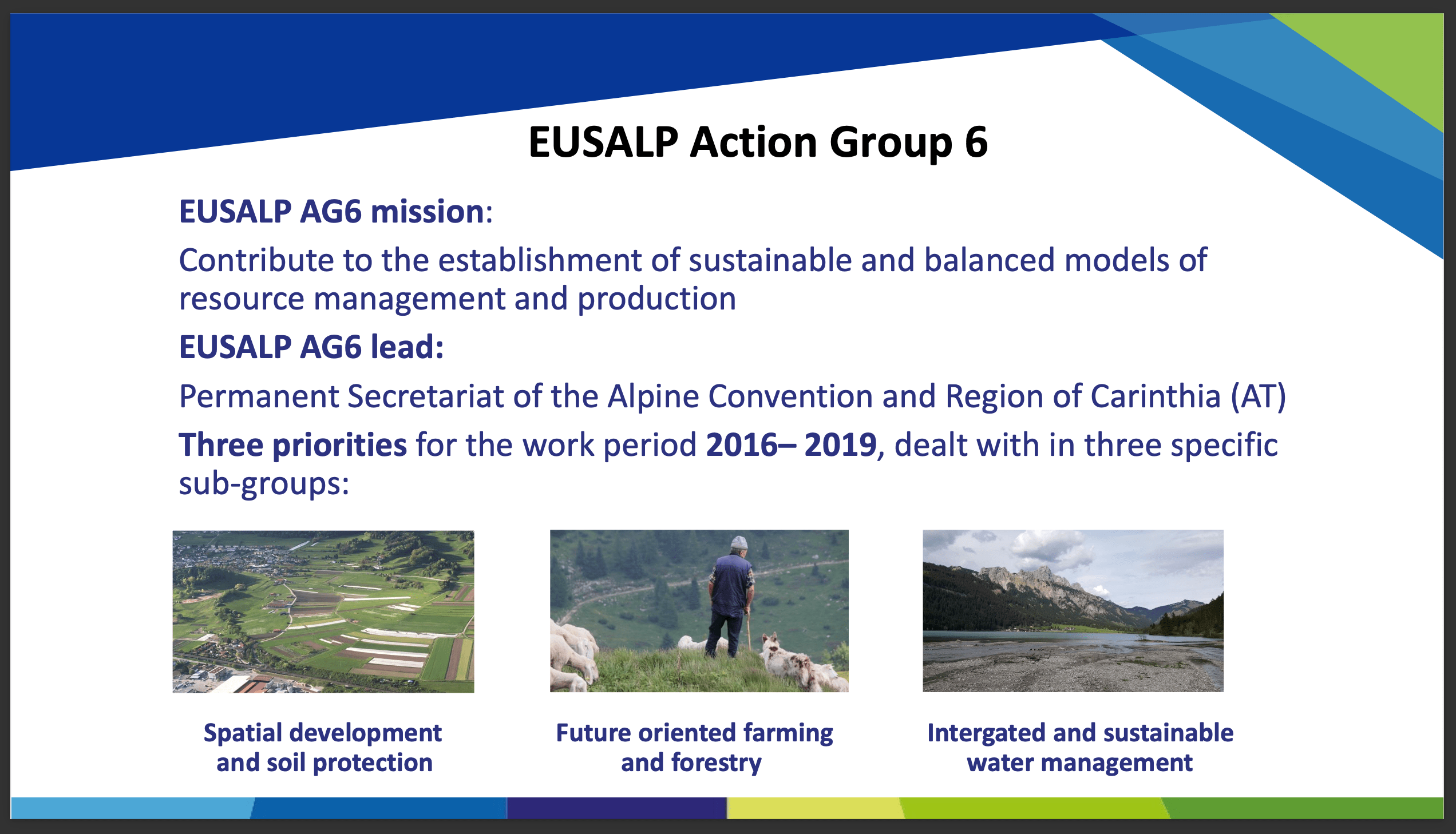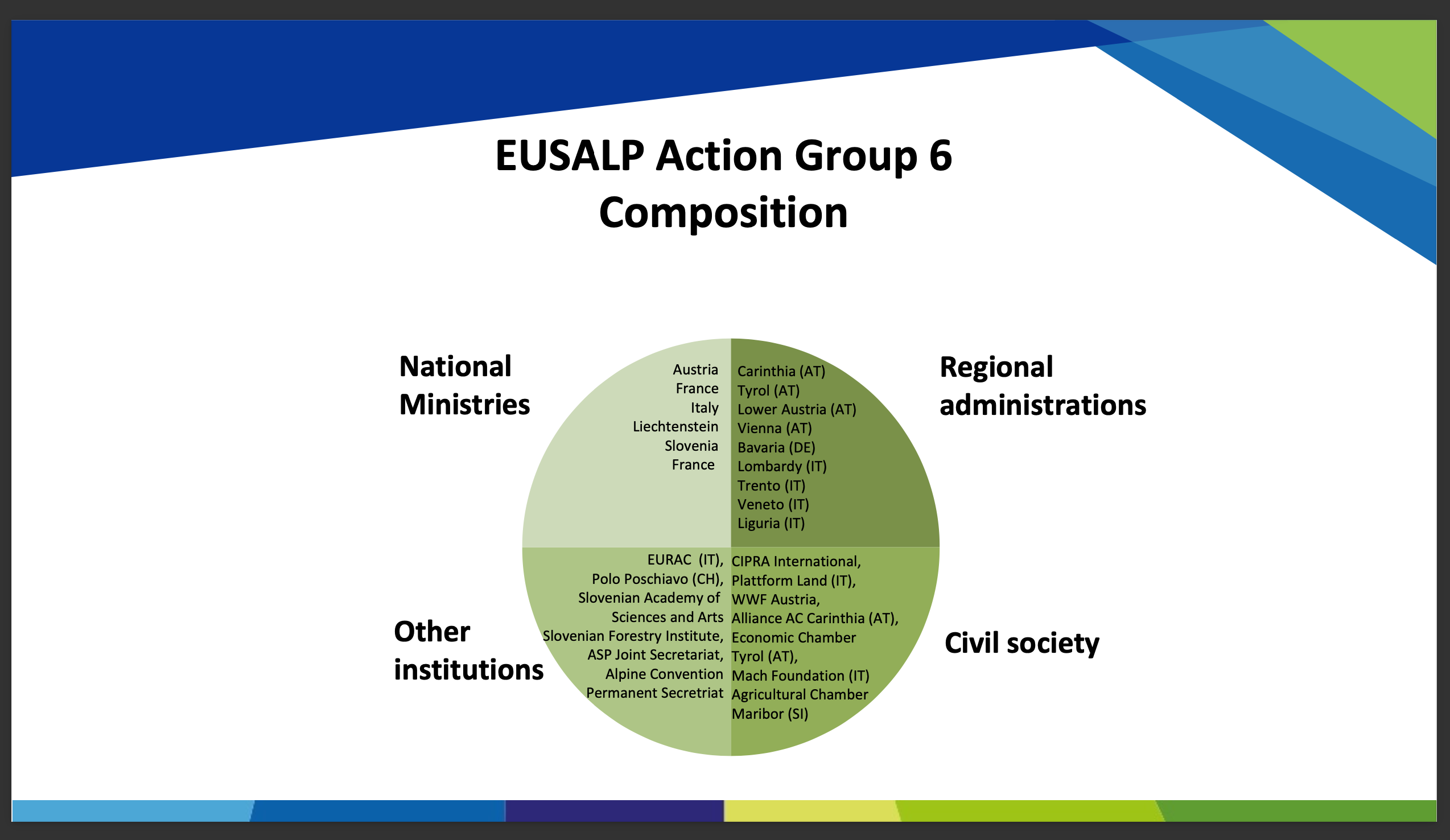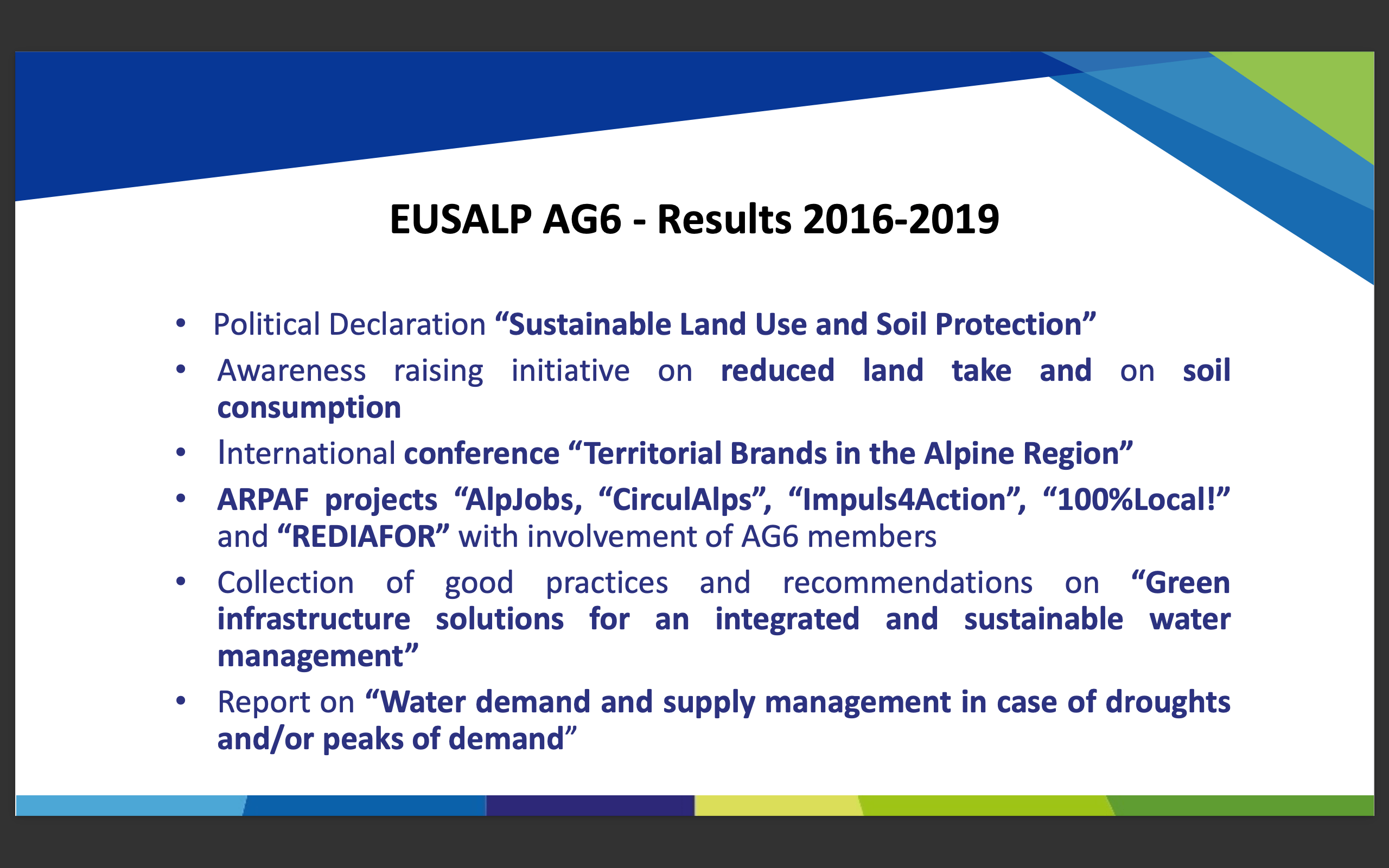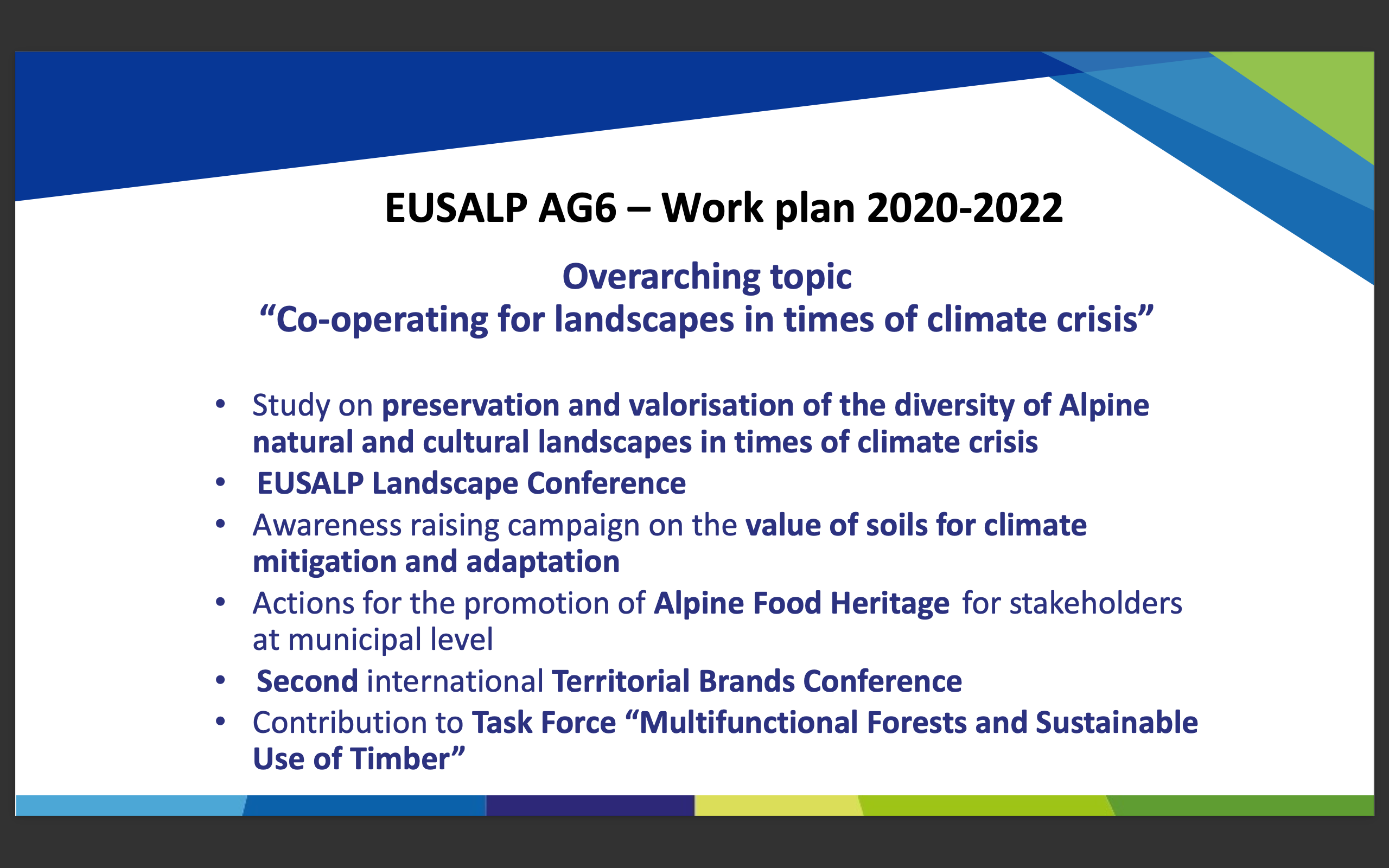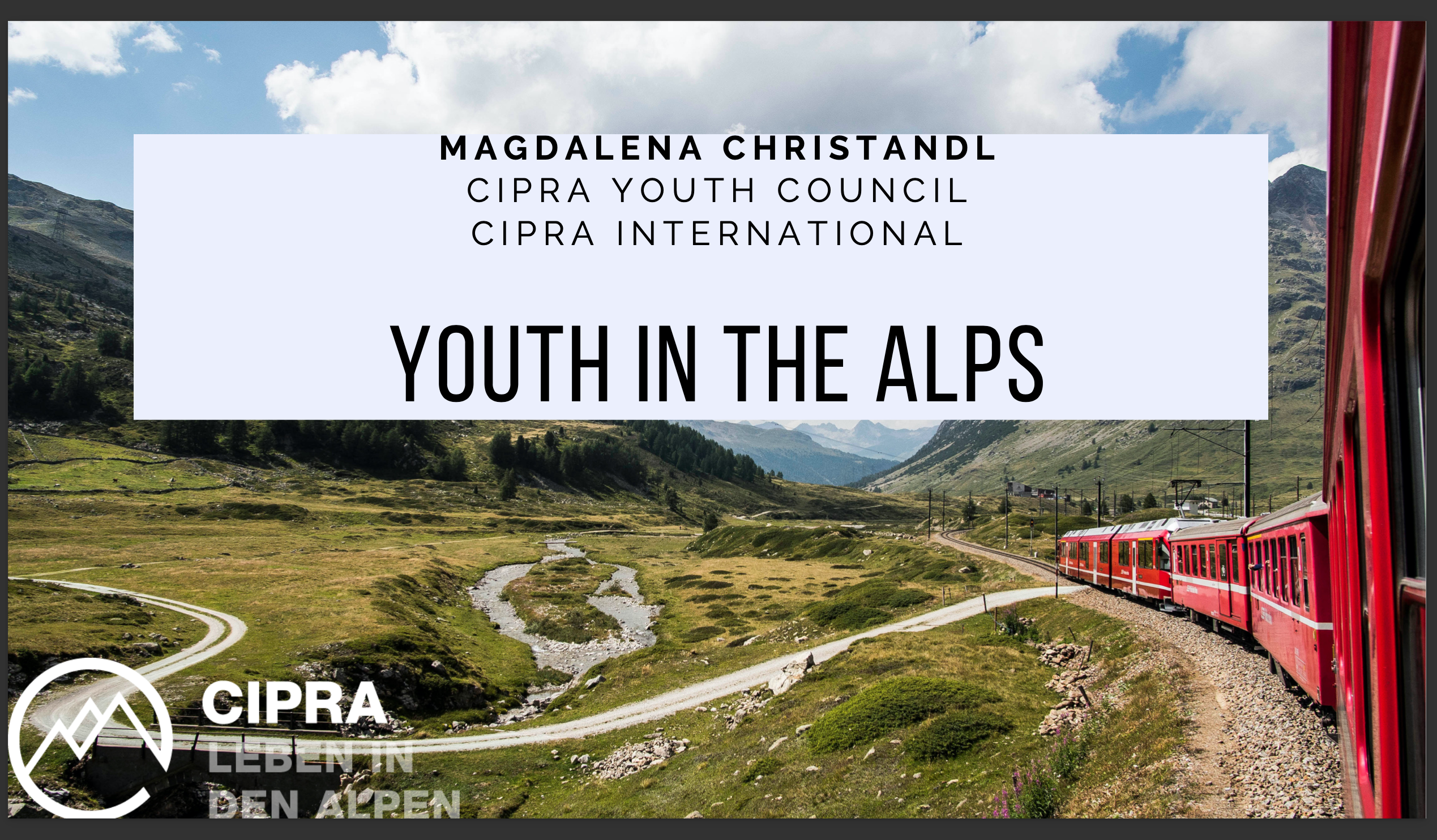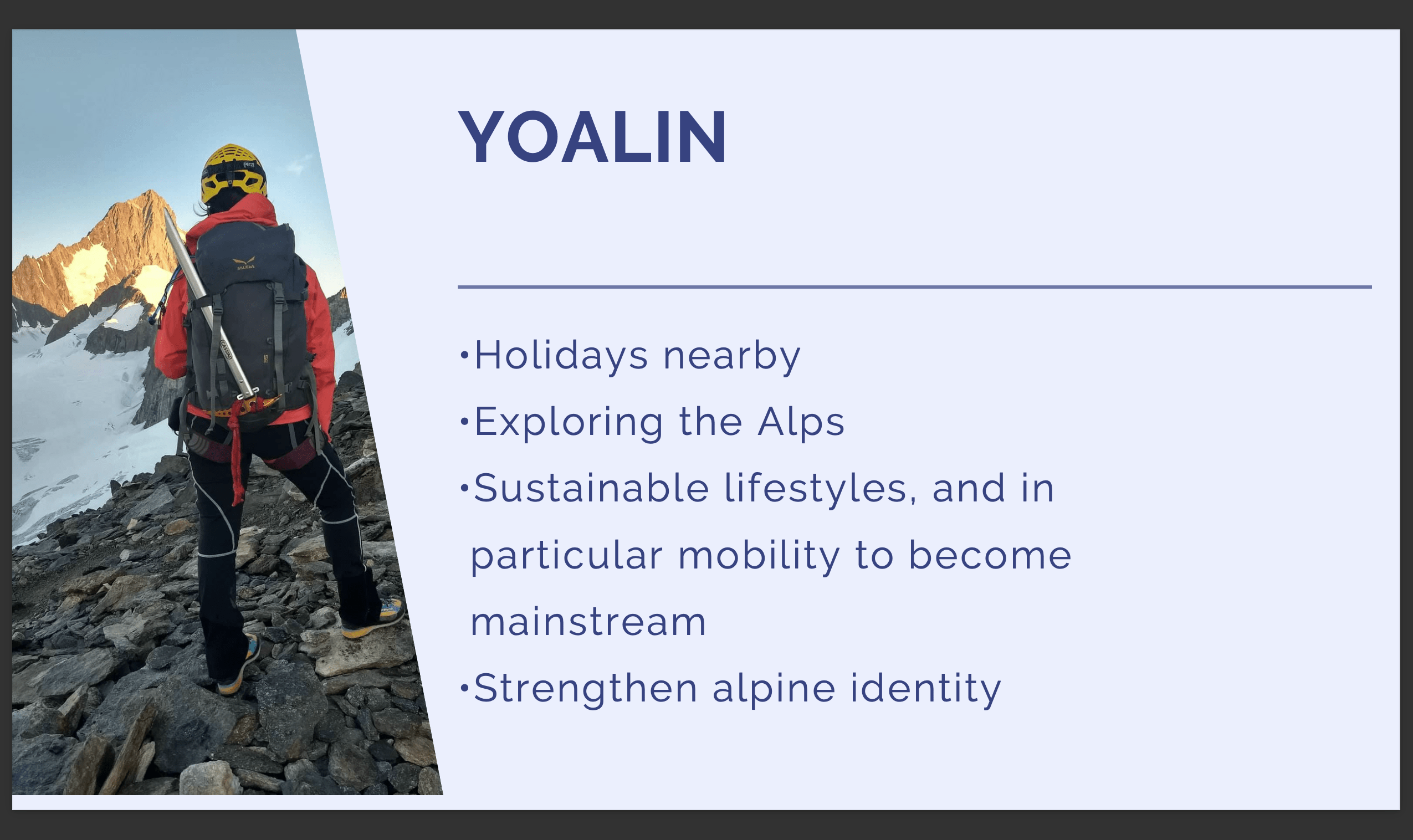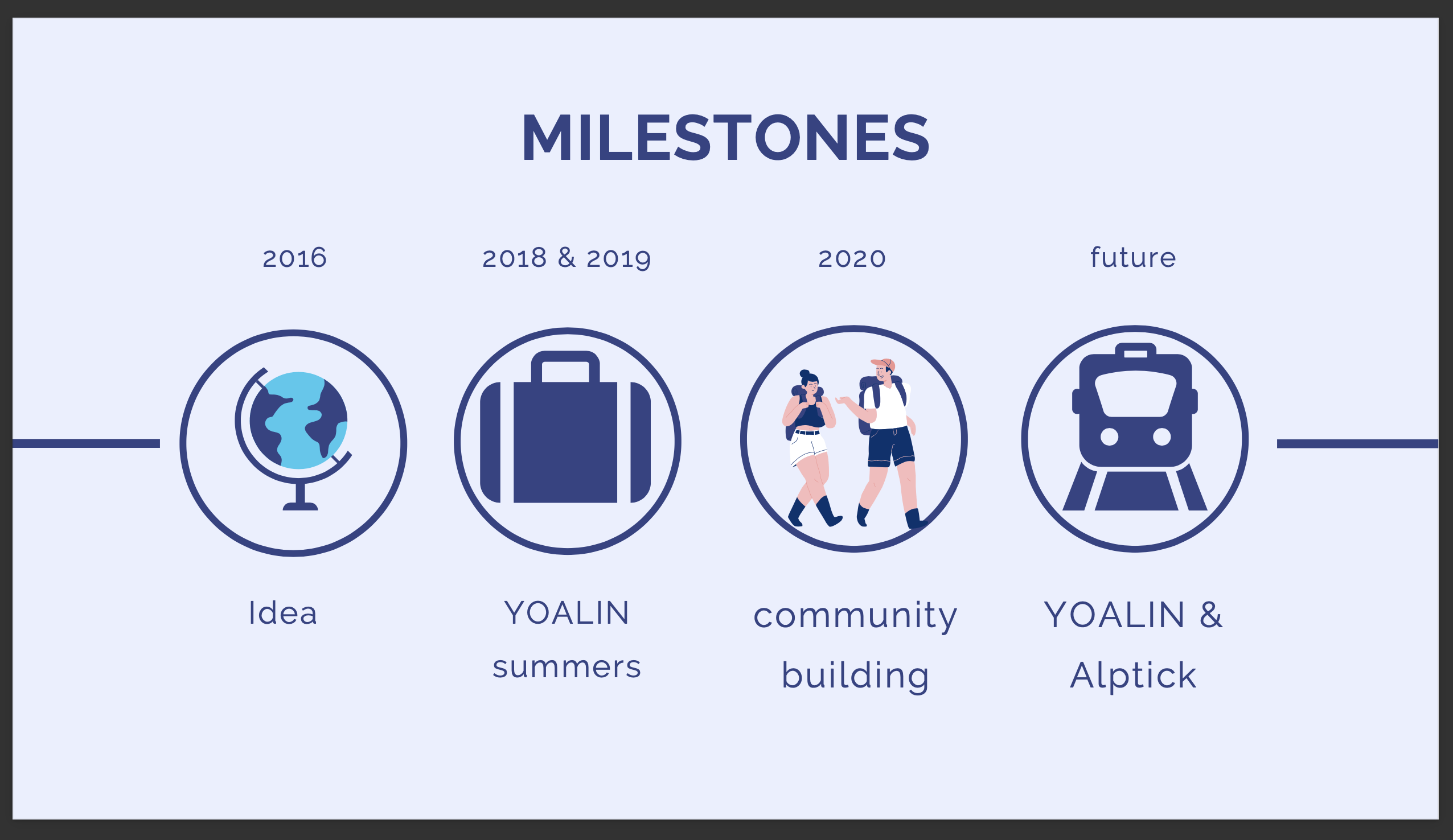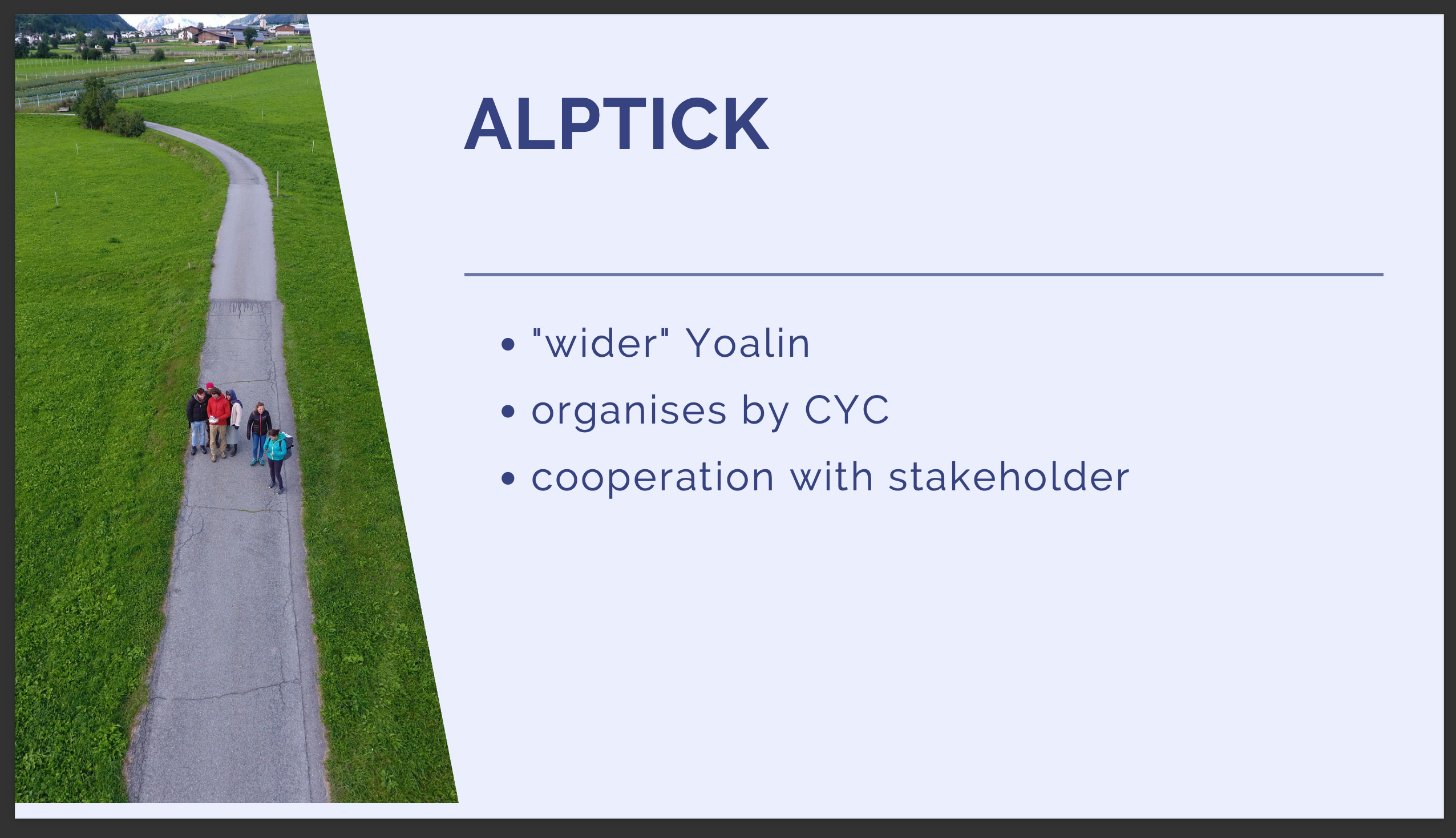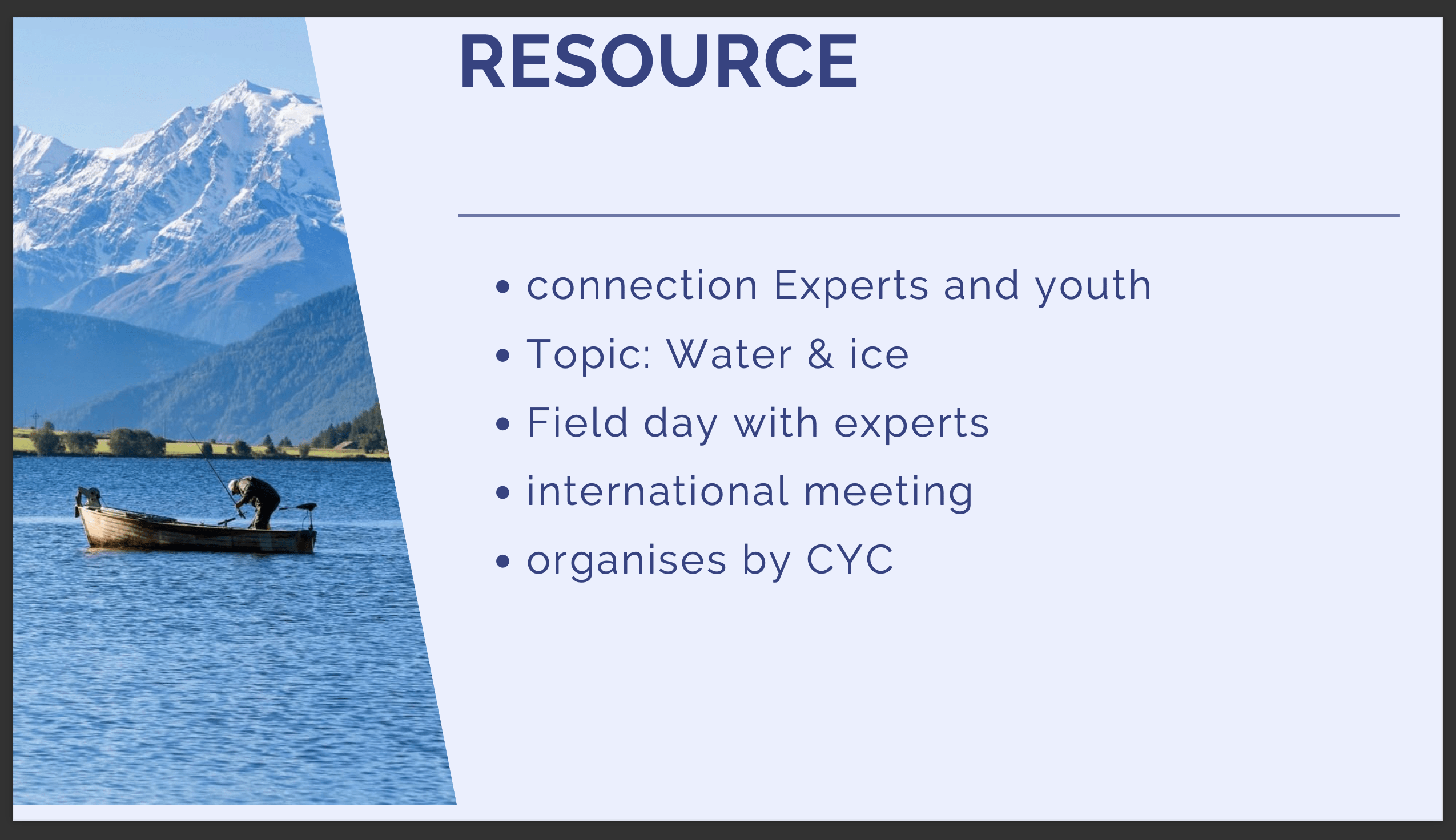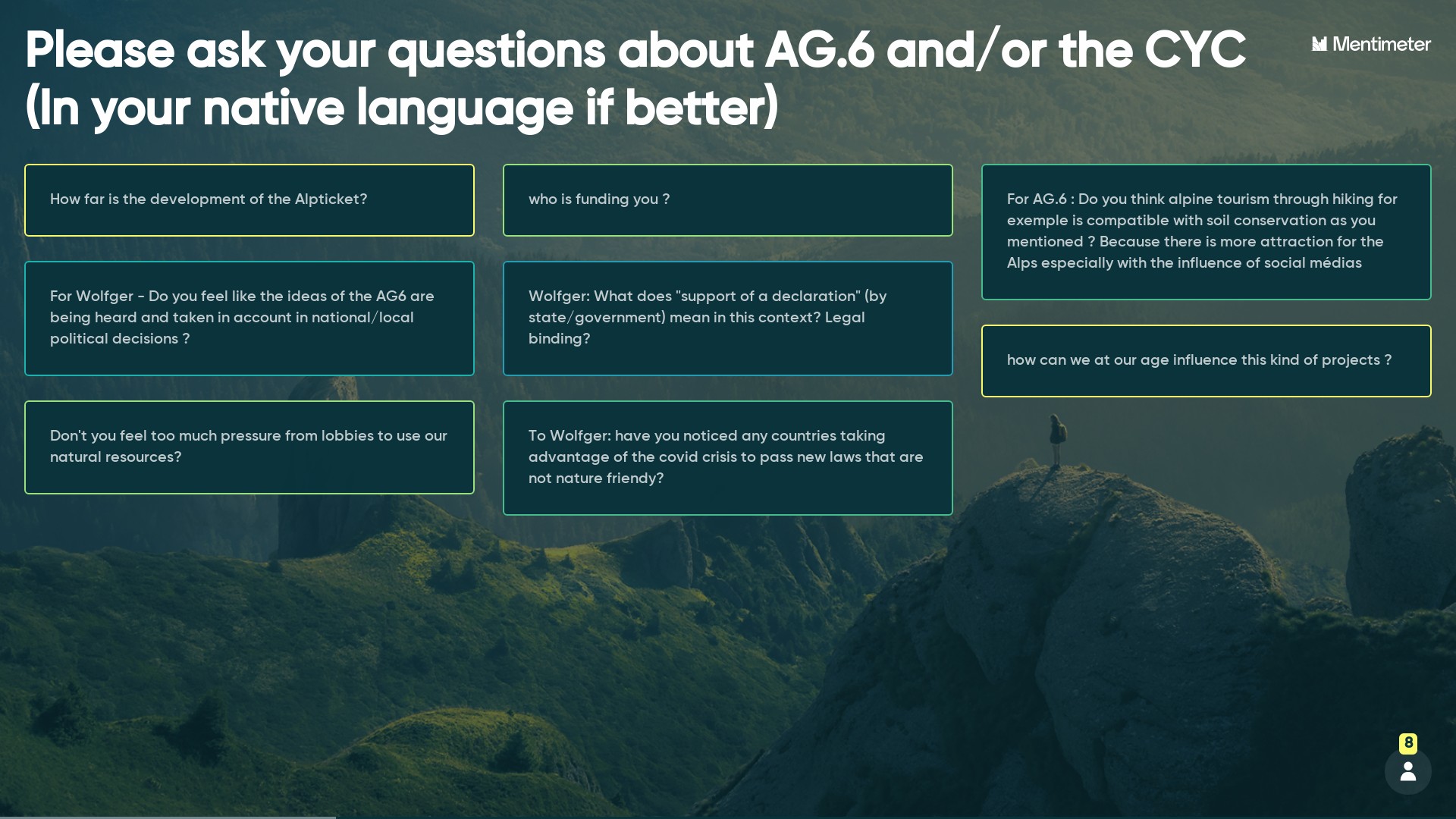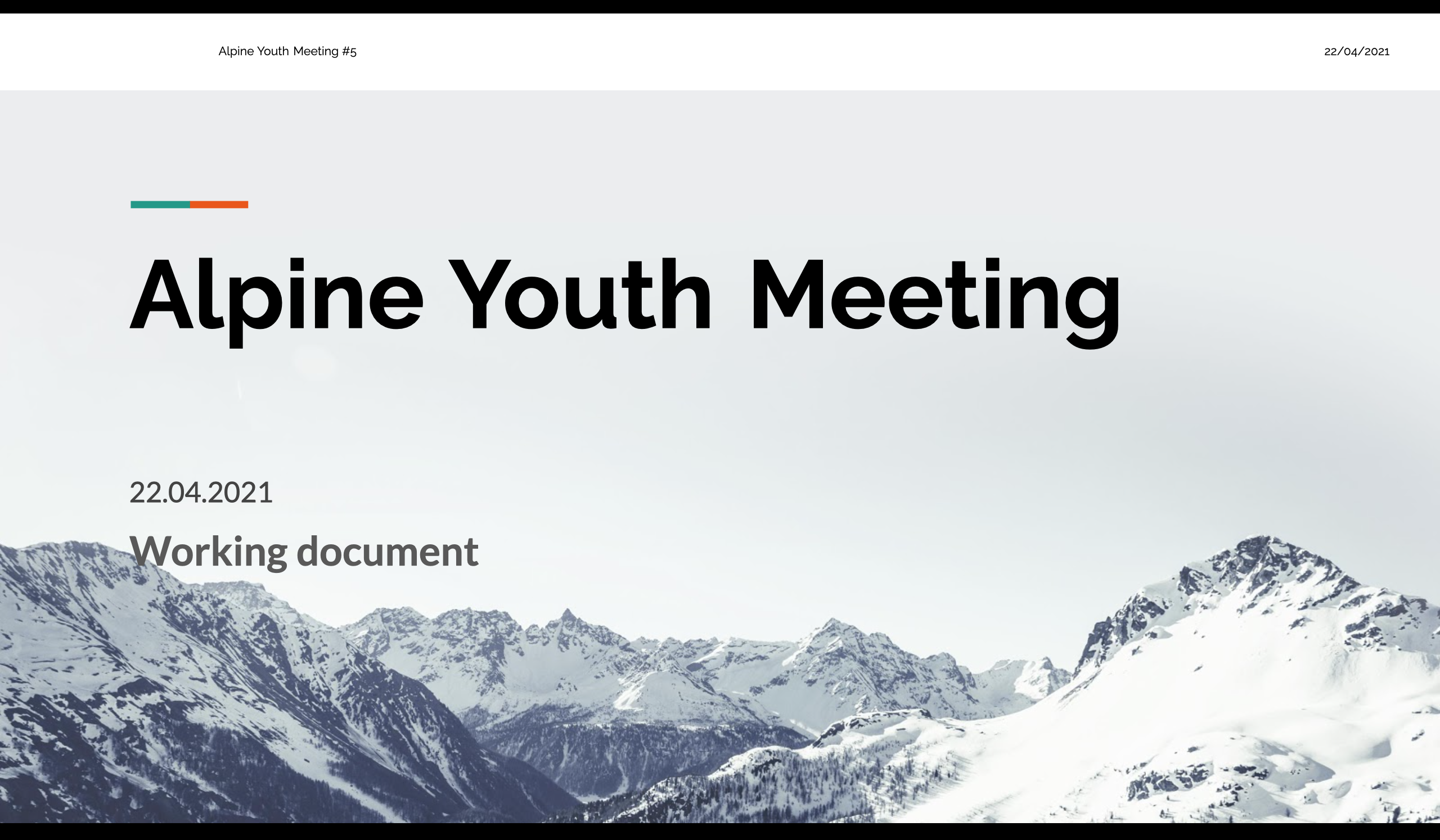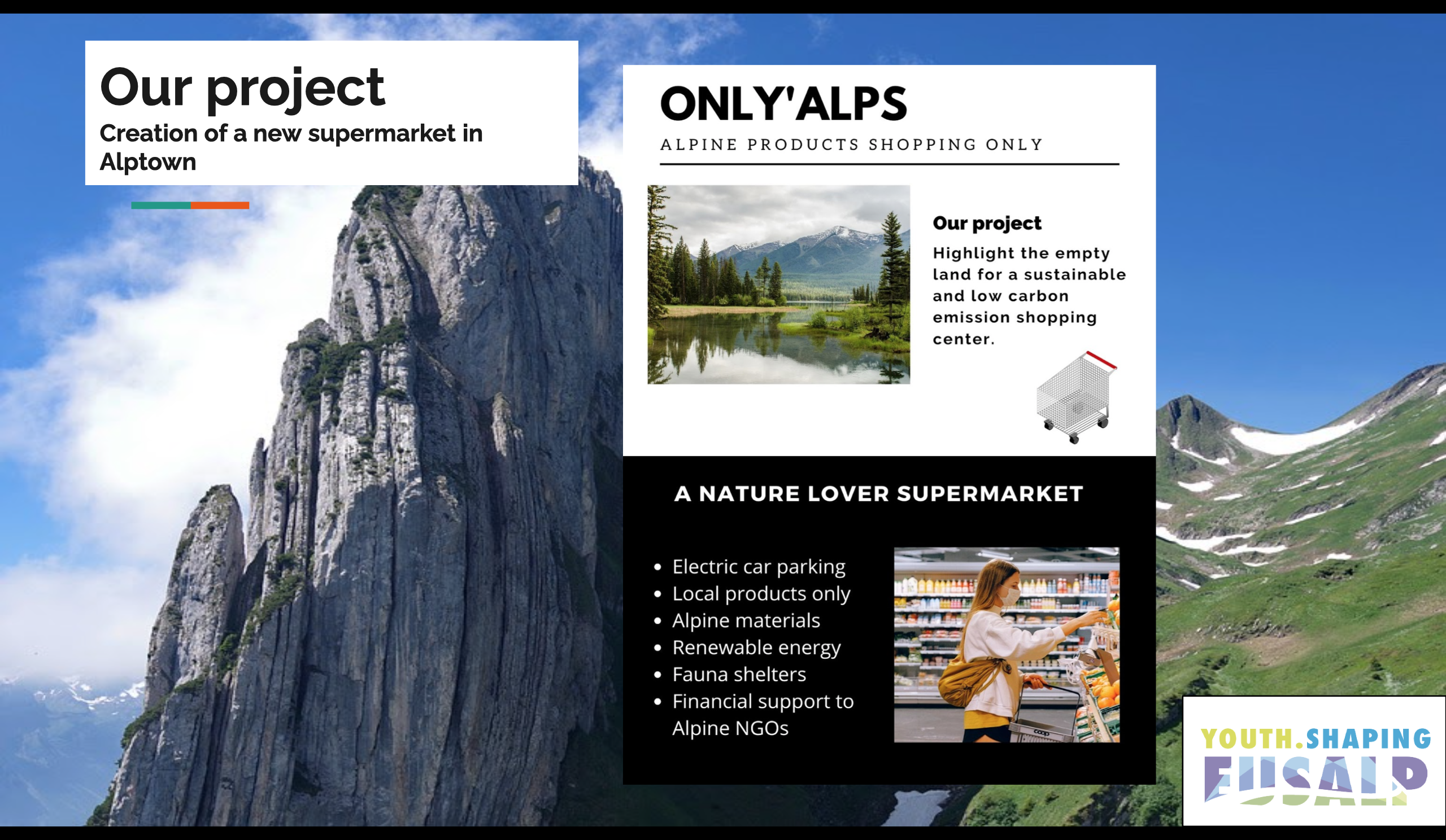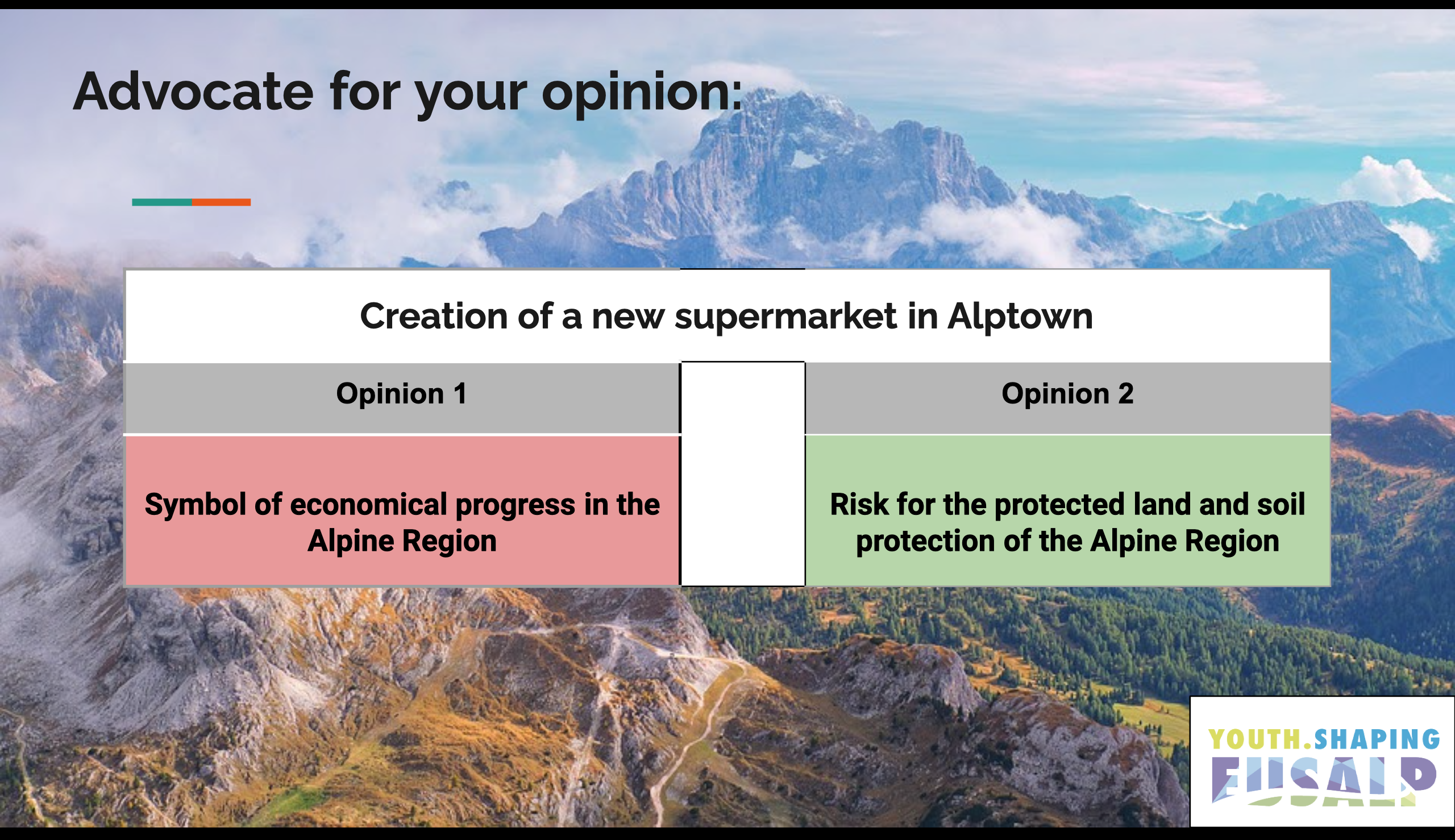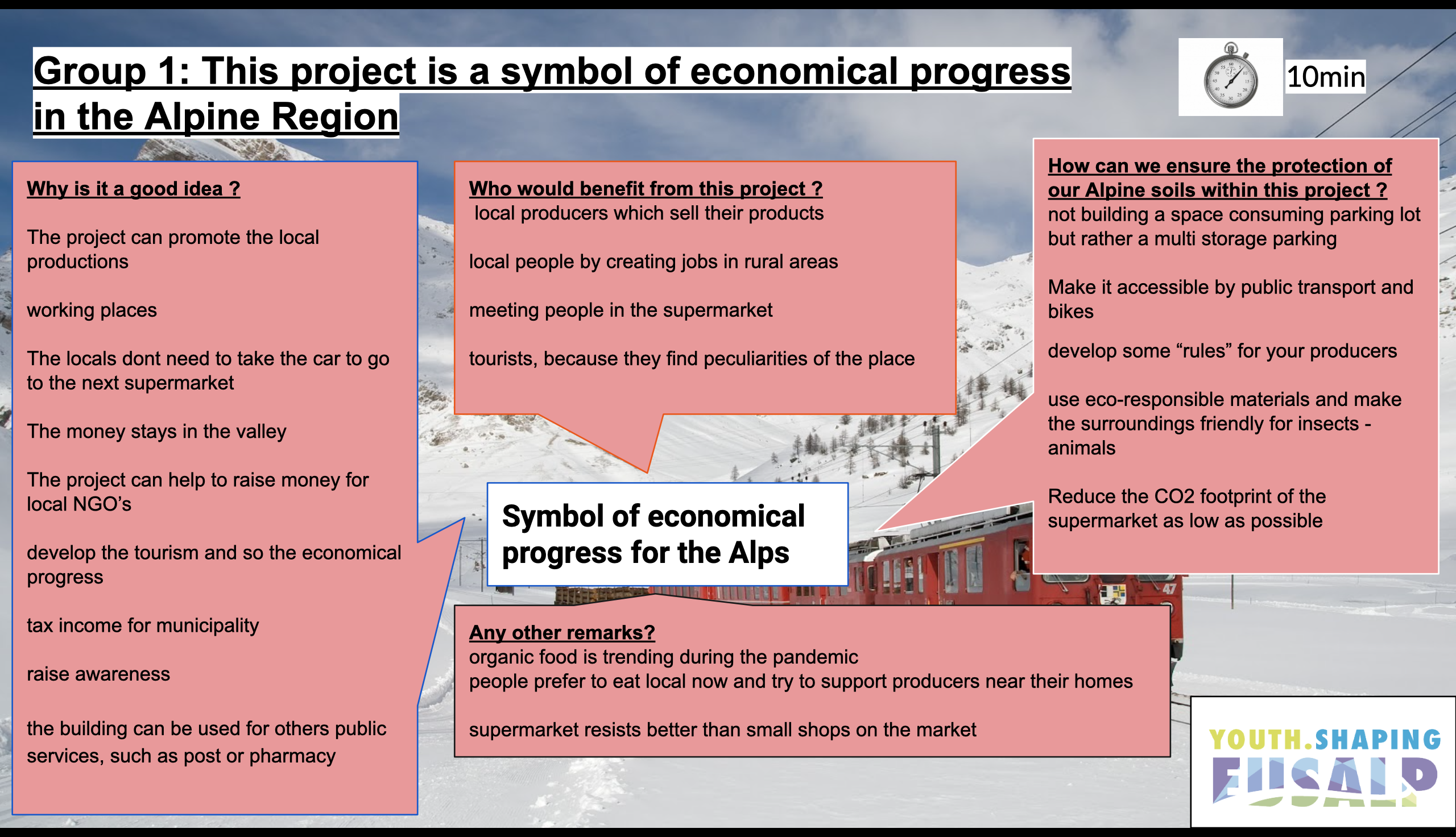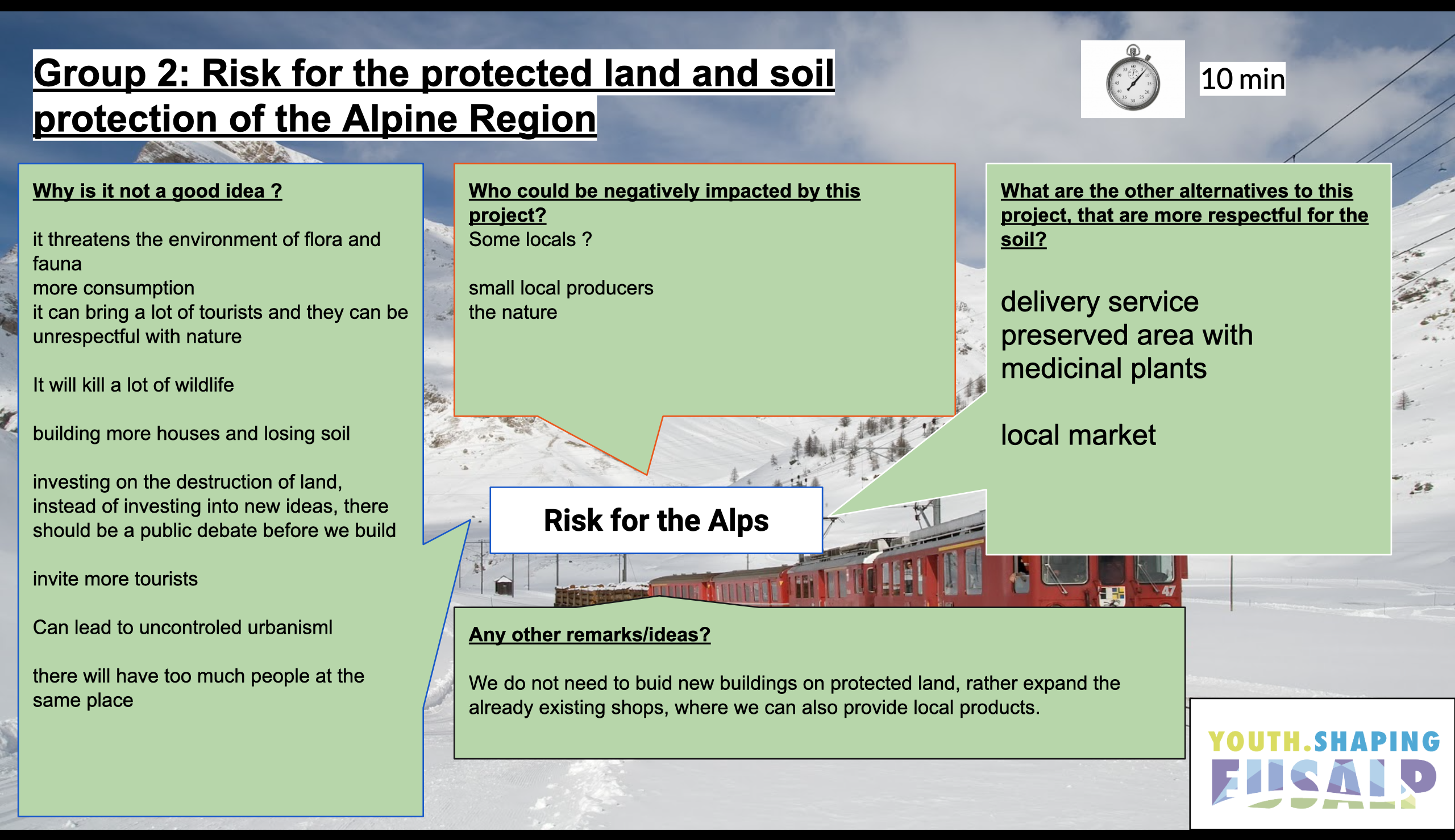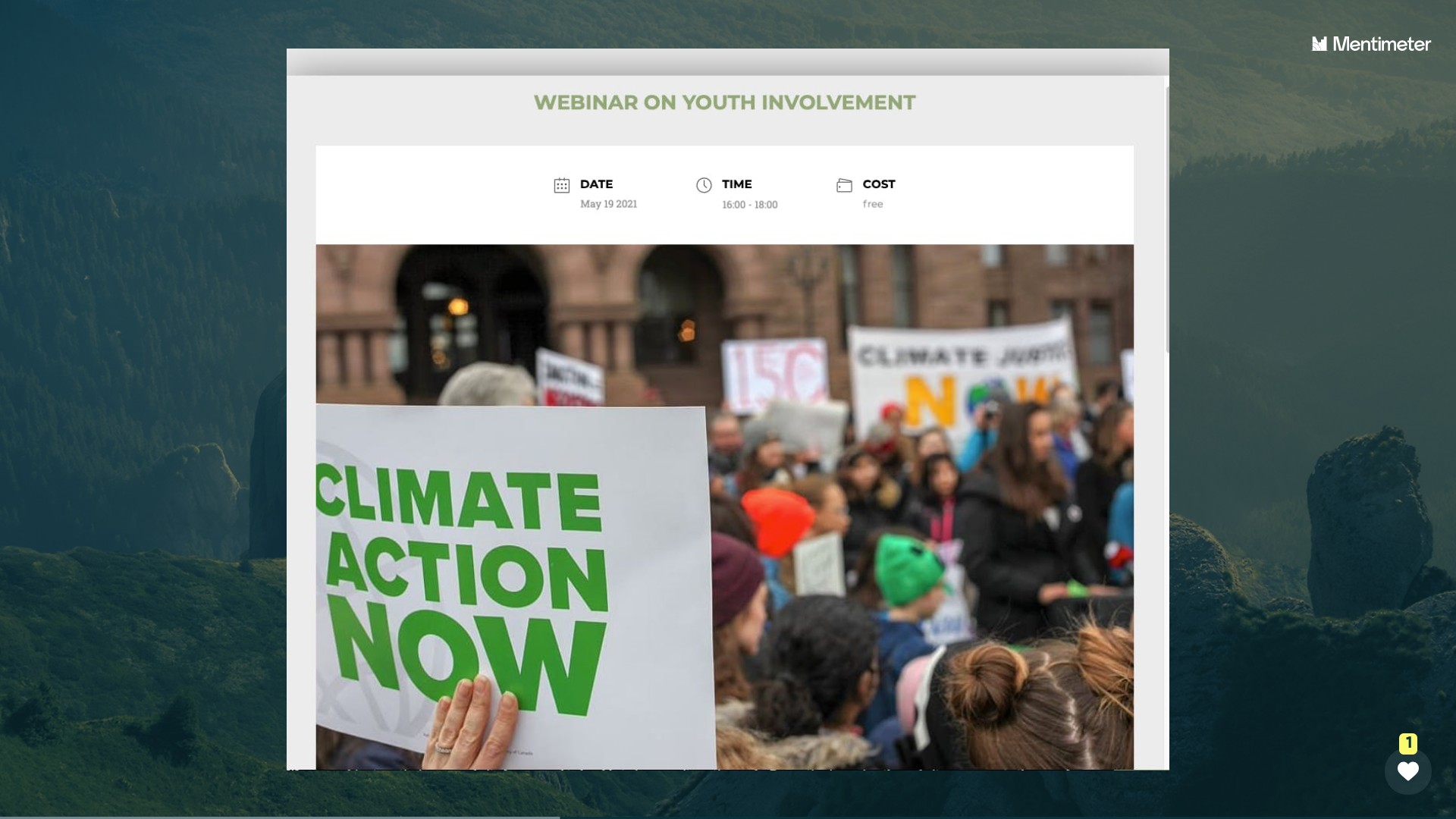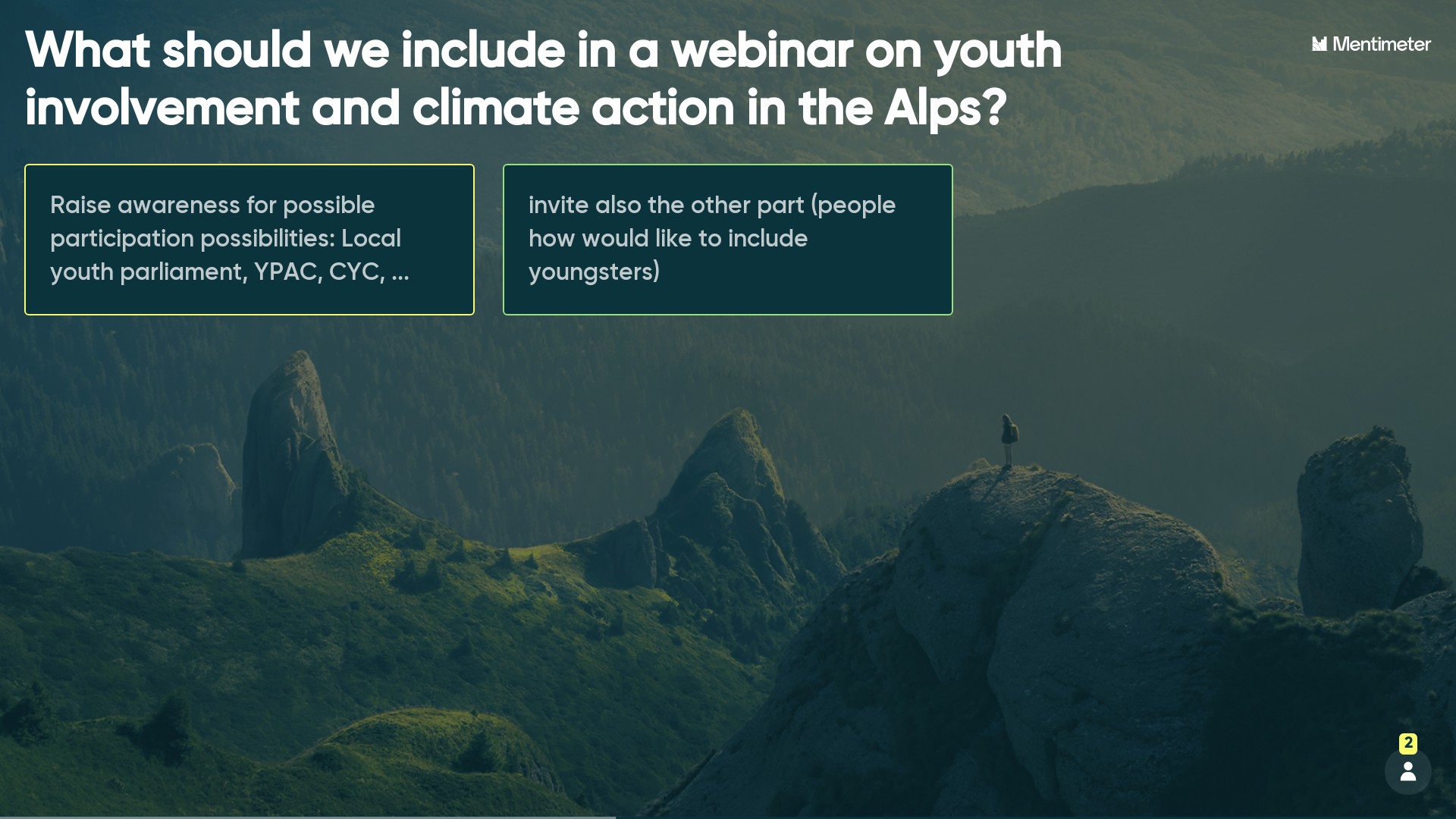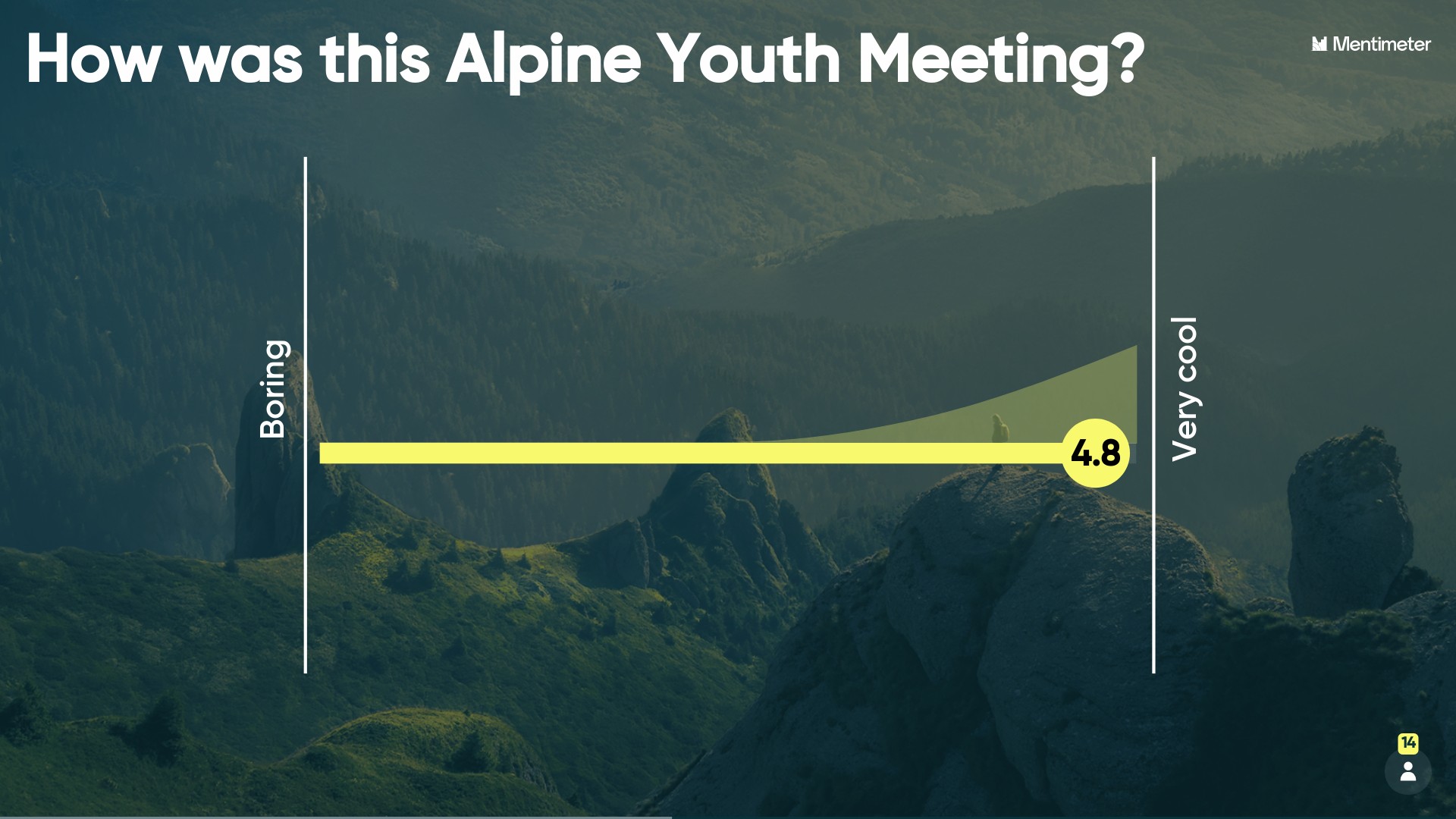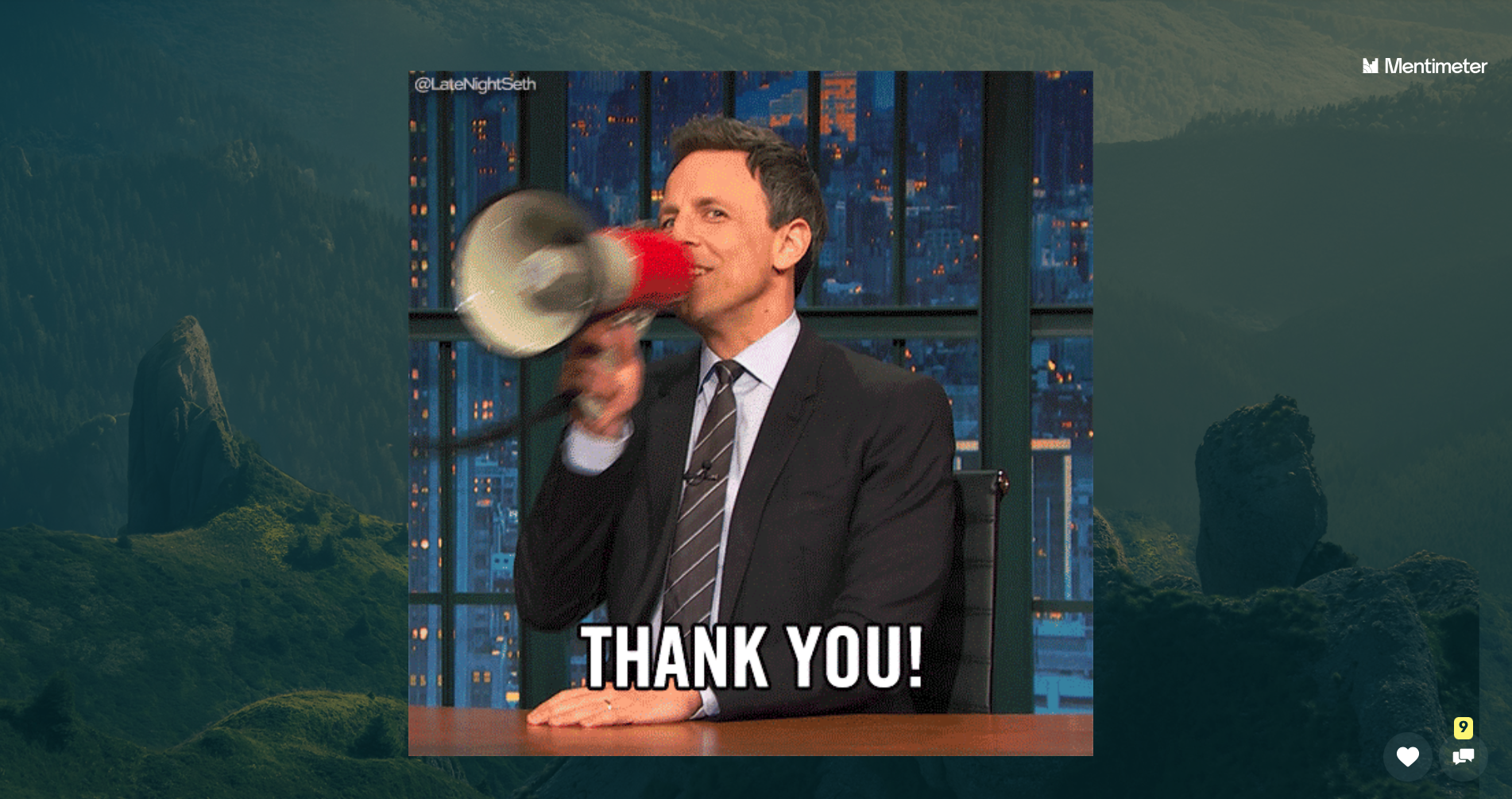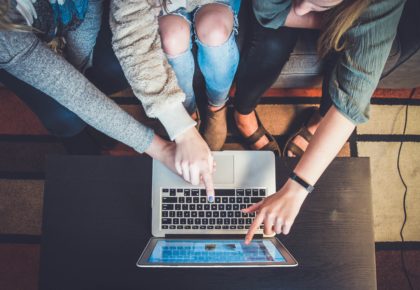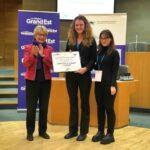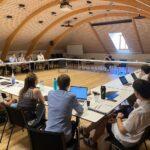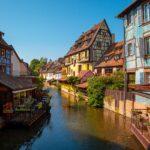In the framework of youth.shaping.EUSALP, online meetings are organized once a month. At these meetings, the EUSALP Action Groups present their work and EUSALP stakeholders discuss topics related to EUSALP youth activities together with young people. The aim of these meetings is to allow young people interested in the youth.shaping.EUSALP activities to get informed, give their point of view on what is being proposed and further develop the tools and activities provided by youth.shaping.EUSALP.
The 5th Alpine Youth Meeting took place on 22nd April 2021 and brought together about 20 young people from the 7 Alpine countries. The meeting took place on World Earth Day, a day that celebrates the world’s natural treasures. Accordingly, the theme of Alpine natural resources was in the spotlight. We had the pleasure of welcoming Wolfer Mayrhofer, leader of the EUSALP AG6 , and Magdalena Christandl, member of the CIPRA youth council, who presented their work and commitment related to the preservation of nature in the Alpine region. We believe that as Alpine citizens we have a strong bond with nature. It was therefore important to show how EUSALP’s activities are strongly connected to the protection of the sensitive alpine nature.
Program
At this meeting, we first gave the floor to our two guests and gave the young participants time to ask questions. Afterwards, we tested a new form of online animation by launching a debate on a fictitious topic related to an Action Group 6 issue. This was to allow the young participants to engage with the topic from different perspectives and challenge their own assumptions. At the end of this rather work-focused moment, we proposed a quiz to test the participants’ knowledge about the Alps.
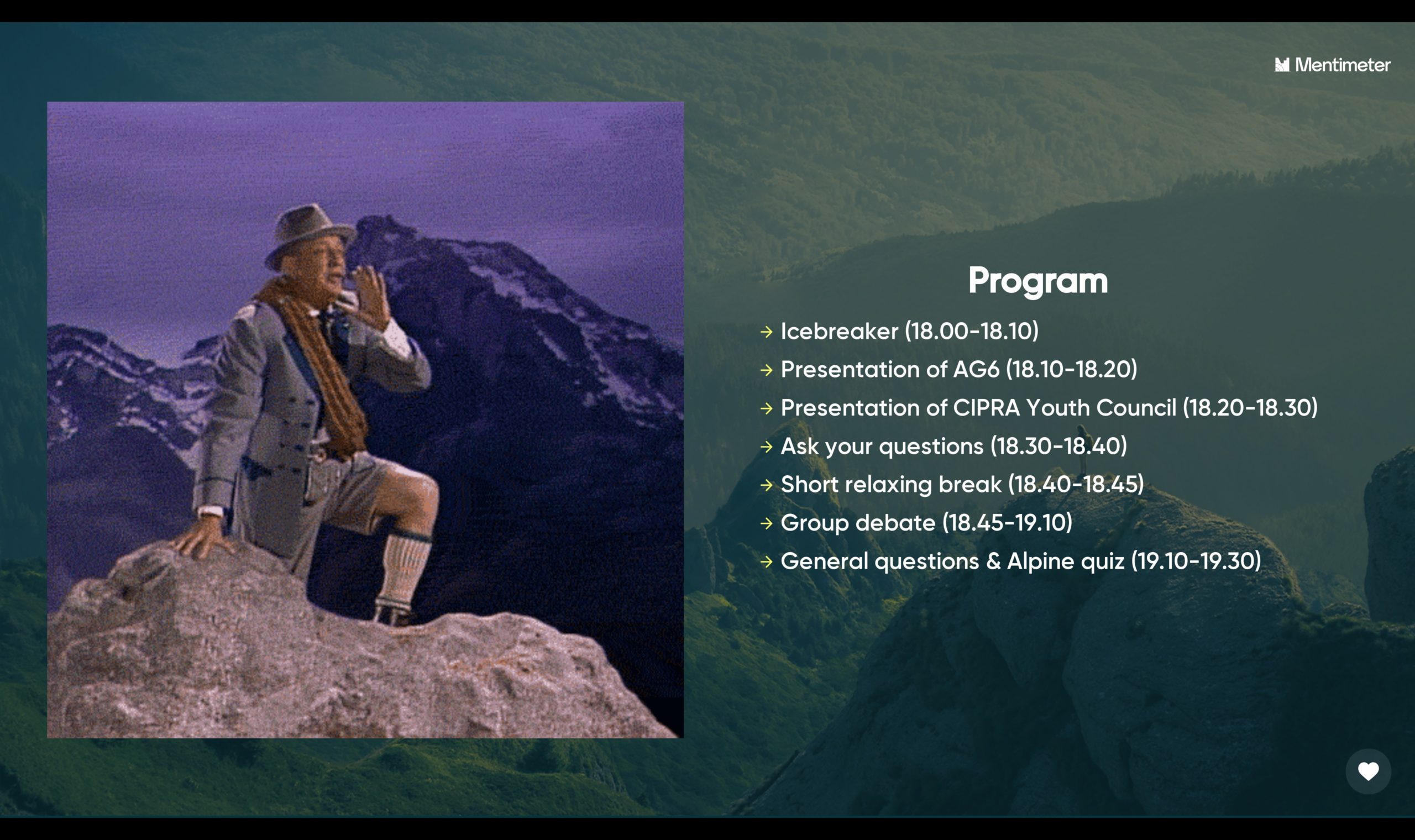
Ice breaker
To break the ice and jump into this meeting full of energy, participants were asked about very important matters. From their phone or computer, once connected to menti.com, participants could choose their preferred option for each of the questions. We note that the participants are not really fan of fire in the mountains, yet it keeps us warm! Well, it’s understandable since most of them are forest lovers. This quick icebreaker helped us reconnect with the nature and the peaceful landscapes of the Alps.
EUSALP AG6
Wolfger MAYRHOFER presented the working methods, the work programme and concrete results of the work of Action Group 6, such as the political declaration “Sustainable Land Use and Soil Protection” or the international conference “Territorial Brands in the Alpine Region“. In AG 6, the Alpine states, regions and NGOs work hard to preserve and further enhance natural resources in the Alps.
The slides shown at the meeting to introduce EUSALP AG 6 can be seen below:
CIPRA Youth Council
The CIPRA (International Commission for the Protection of the Alps) is a non-governmental organization with national and regional representation in the seven Alpine countries. It brings together more than 100 associations and organizations. CIPRA is working towards several objectives: sustainable development in the Alps, including the preservation of the cultural and natural heritage and regional diversity, as well as the development of transnational solutions to the problems encountered in the Alpine region. Since 2013 the CIPRA Youth Council is representing the young generations within CIPRA International, and many projects and achievements have been made since then.
Below you can see the slides that were shown at the meeting to introduce the CIPRA Youth Council:
Questions about the two presentations
After the presentation, participants were invited to ask questions. We used mentimeter.com to facilitate the participation of the young people present in the meeting. Here are the questions that were asked and the answers we can provide at this time:
Questions about CYC
- How far is the development of the Alpticket?
This project had won the 2018 edition of EUSALP Pitch Your Project. Since then, the members of the CIPRA Youth Council have continued to talk to national and regional railway companies to assess the feasibility of their idea. The implementation of such a ticket in an area as large as the Alps is a real challenge. It takes a lot of time and convincing of the companies. The CYC managed to organize a meeting between many representatives of the European rail transport sector during the Alpweek 2020. This online meeting allowed a better understanding of the problems and limitations of the project in order to define a more efficient action strategy for the future of the project. The workshop also allowed AlpTick to get in touch with Austrian university professors who are now thinking about proposing this project as a topic for their bachelor or master thesis next year.
Furthermore, the members of the AlpTick project have collaborated with the Ministry of Transport of the Swiss canton of Graubünden to promote a new offer in the Alps. During the months of June, July and August 2021, this offer will allow young people up to 25 years old who hold an Interrail or Eurrail pass to travel to Italy and Austria on cantonal and cross-border buses for a modest price, compared to standard Swiss fares. More information will be published on our blog in the coming weeks.
- Who is funding you?
It depends on the project. Most of the projects work thanks to grants provided by the regions or the European Commission. Sometimes patrons finance projects to show their support to the actions carried out. It is important to stress that all members of the CYC are volunteers and that some projects can be taken over by the paid staff of CIPRA International.
Questions about AG6
- Do you feel like the ideas of the AG 6 are being heard of and taken into account in national/local political decisions?
The current ecological and climatic situation requires that the recommendations from the work of Action Group 6 are taken into account in political decisions. Therefore, on the whole, the answer is yes. However, it must be stressed that the Alpine context is still very complex, with strong economic pressure to exploit natural resources and land. This does not facilitate the full implementation of the recommendations.
- Do you think alpine tourism (like hiking for example) is compatible with soil conservation as mentioned? Because there is more attraction for the Alps especially with the influence of social media.
Obviously, this issue needs to be brought back to the scale mentioned here. Mass tourism will not be compatible with land conservation, while gentler tourism is more in line with the recommendations of Action Group 6. Our goal is to find the right balance between economic stability in the Alpine region and respect for the natural landscapes and resources in the Alps. Because one thing is certain: you can’t have one without the other. No nature, no tourism…
- Have you noticed any countries taking advantage of the covid crisis to pass new laws that are not nature friendly?
It is still too early to answer this question as the COVID 19 health crisis is still very present. In any case, after this unprecedented period, it will be necessary to be vigilant not to reproduce the harmful models that were prevalent before the crisis and to build a model that is more respectful of the environment.
- What does “support of a declaration” mean in this context? Legally binding?
The Declaration on Soil Protection and Sustainable Land Use is not a legally binding document. The member states and regions of the EUSALP have officially committed themselves to this document and its recommendations. Thus, the document is intended to create awareness of the issue and to guide the actions of the states and regions. At the same time, it is possible to refer to this official commitment and hold the states and regions accountable for it. However, there is no legally binding effect that could be enforced in a court of law.
- How can we, at our age, influence this kind of projects?
Due to a lack of time this question could not be answered by Wolger Mayrhofer during the meeting. We tried to give an answer from our perspective: There are several ways to influence natural resource protection projects. First, you can question and challenge members of these projects at Alpine Youth Meetings and further youth activities in EUSALP. You can also become a member of a participatory body that involves young people in the public debate. It is also possible to join an association that defends a cause that you believe is right, and through this involvement, influence political decisions. If you are old enough to be eligible, it is also possible to be a candidate in elections. Finally, we are convinced that with willpower and commitment, it is possible to influence an issue, no matter how old you are.
Group debate
The working method of the debate is a novelty during the Alpine Youth Meeting. The debate should stimulate the young people to actively engage with the topic. At the same time, we wanted to take advantage of these meetings to test new methods of animation that could be useful for the continuation of the project. Conducting a debate seemed relevant to us in the context of the topic of natural resources, since people often take only one point of view on this topic and rarely consider that there are always several perspectives possible.
Therefore, we asked Wolfger Mayrhofer to suggest themes related to AG 6 to feed this debate. He suggested us “caring for sustainable land use and soil protection in the Alpine Region”. Subsequently, we created a fictitious project that promoted a new organic shopping mall in the village of alptown. The participants were all randomly sent to two different zoom rooms. One room was in favor of the project, the other against. A document shared on Google Drive allowed each group to write down their arguments. The objective of this debate was to consider whether this project was compatible with the protection of the Alps. Due to the random division into different groups, the difficulty was to put oneself in the position of the others and think differently.
Below you can see the slides that were used as a working document at the meeting:
General information
The next Alpine Youth Meeting will take place on May 27th between 6pm and 7.30pm. We have not yet decided on the topic and the program. We count on your presence – and do not hesitate to invite your friends!
The application period for the Youth Council runs until May 16th. We are available to answer your questions, don’t hesitate!
We also informed the participants about the opportunity to join the next webinar on youth involvement organised by the climate board of the Alpine Convention.
Thanks again to all the young and “less young” participants who are involved in the youth.shaping.EUSALP project. The positive atmosphere and the quality of these moments are only possible thanks to you.
